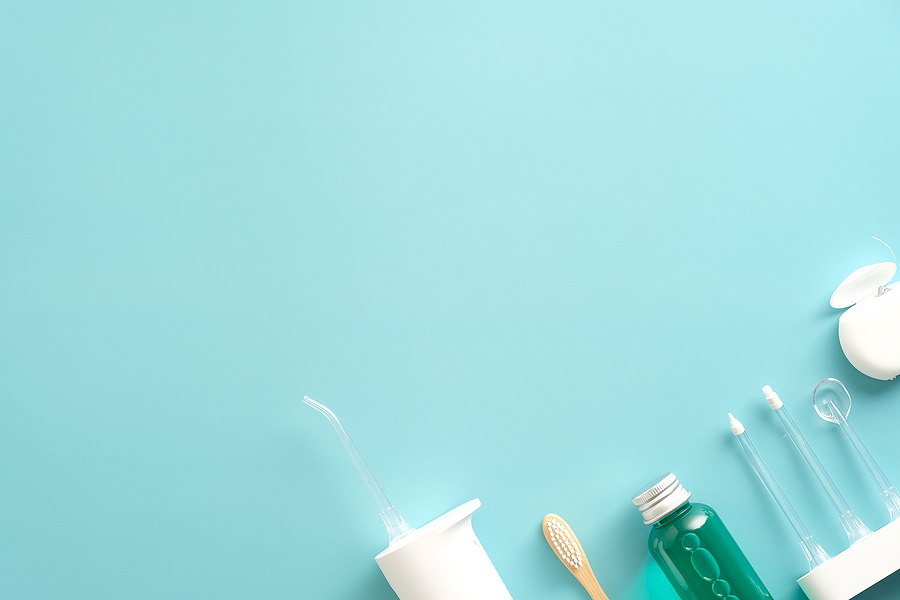
Water flossers are becoming more popular & they can be great in combating gum disease, but what is it, exactly?
A water flosser—also called an oral irrigator or water jet—is a lot like a toothpick, except instead of jabbing yourself with a piece of wood, a concentrated stream of water is used to flush out flood buildup, plaque & other harmful material between the teeth. Often, the water jet is pulsed, which allows for particles to flow out from the area before the next high pressure jet.
Unlike floss or toothpicks, the fluid nature of a water flosser means even the hardest to reach areas are accessible to be cleaned. This makes water flossers especially handy for those with gum disease, which happens to be at least half of us. In addition, those with orthodontic appliances like braces can also benefit from this device.
Feeling Pressure
Water pressure is built up from a reservoir that can be filled with lukewarm tap water or filtered water, though using filtered or distilled water may help keep the waterline cleaner longer (think scaling on a coffee pot). Depending on the brand, you will have the option to adjust the rate of flow & have a trigger-like device to start/stop water flossing.
While these devices rely on pressure to clean teeth, it’s nothing to worry about. There isn’t enough pressure to cause pain, & use of water flossers in addition to regular floss & brushing can reduce bleeding & irritation.
Use as Directed
Using a water flosser is fairly straightforward, but there are a few pointers to get the most out of your purchase. While it’s best to read the instructions for the model you pick, generally you should start with the back teeth on one side & work your way around until you reach the back of the opposite side.
As stated, water flossers are great for hard-to-reach places, so focusing on the gum line & between teeth is ideal. There may even be different attachments for the end of your flosser, which can aid in specific cleaning areas.
Remember, water flossing is a supplement for, not a replacement of, brushing & traditional flossing. Talk to your dentist about specific questions concerning your oral health & if a water flosser would benefit your hygiene routine.
Sources:
https://pmc.ncbi.nlm.nih.gov/articles/PMC5426403/
https://www.webmd.com/oral-health/what-is-waterpik
https://www.mayoclinic.org/healthy-lifestyle/adult-health/expert-answers/dental-floss/faq-20058112
